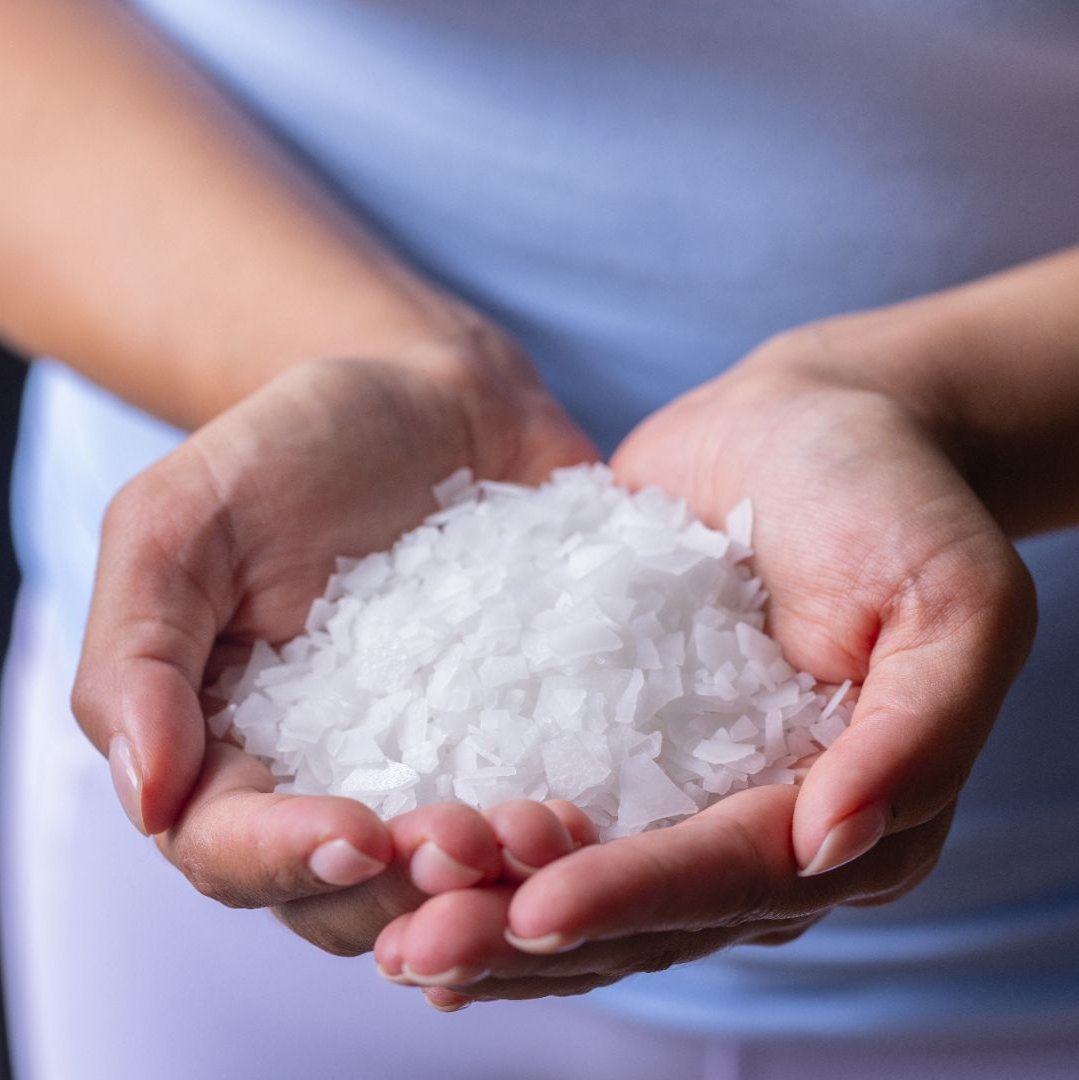
Magnesium en Bechterew: Verlichting voor een uitdagende reis
Leven met Bechterew kan een uitdaging zijn, maar Magnesium supplementen kunnen je helpen om op een natuurlijke en effectieve manier je lichaam te ondersteunen.
Magnesium en Bechterew: Verlichting voor een uitdagende reis
1. Symptomen: Bechterews impact op het dagelijks leven
Bechterew, ook bekend als spondylitis ankylopoetica (axiale SpA), veroorzaakt vooral chronische ontstekingen in de wervelkolom en grote gewrichten. Symptomen kunnen zijn:
- Aanhoudende rugpijn, vooral ’s nachts.
- Ochtendstijfheid die verbeterd met beweging.
- Vermoeidheid door ontsteking en verstoorde slaap.
- Verminderde flexibiliteit en mobiliteit na verloop van tijd.
Deze symptomen kunnen het dagelijks leven aanzienlijk beïnvloeden, waardoor effectieve symptoombestrijding cruciaal is.
2. Een persoonlijke reis
De verbinding tussen Bechterew en magnesium is nauw verweven met de reis van een van onze oprichters, Roelof. Tijdens zijn zoektocht naar verlichting van Bechterew-symptomen raadde een vriend hem magnesiumolie aan. Tot zijn verrassing bracht dit aanzienlijke verlichting. Dit leidde tot verdere ontdekkingen, waaronder dat de puurste natuurlijke magnesiumbron ter wereld zich vlak onder zijn voeten bevindt in Groningen. Verrast dat zo’n krachtig natuurlijk middel relatief onbekend was, richtte hij samen met een klein team OMg Magnesium op om de voordelen met de wereld te delen.
3. Bechterew en magnesium: een wetenschappelijk onderbouwde verbinding
Magnesium speelt een cruciale rol bij het verminderen van ontstekingen, het ondersteunen van spier- en gewrichts gezondheid en het verbeteren van slaap. Studies tonen aan dat magnesium ontstekingsremmende eigenschappen heeft en de immuunrespons helpt reguleren. Onderzoek suggereert dat mensen met chronische aandoeningen, waaronder artritis, vaak lagere magnesiumspiegels hebben, wat symptomen kan verergeren. Aan het einde van dit artikel is een overzicht van relevante wetenschappelijke bronnen opgenomen.
Veel mensen met de ziekte van Bechterew (Ankyloserende Spondylitis) hebben positieve effecten gerapporteerd door het gebruik van magnesium.
Bijvoorbeeld, Jemma Newman deelde haar ervaring in een artikel op Ankylosing Spondylitis News, waarin ze aangaf dat het gebruik van vloeibaar magnesium hielp bij het verlichten van spierstijfheid en haar slaapkwaliteit verbeterde. (ankylosingspondylitisnews.com)
Evenzo meldde een lid van de Spondylitis Association of America-forums dat magnesiumsupplementen “wonderen verrichten” voor hen, met verlichting van de symptomen van Bechterew als resultaat. (forums.spondylitis.org)
Deze persoonlijke verhalen suggereren dat magnesium voordelen kan bieden voor sommige mensen die leven met de symptomen van de ziekte van Bechterew. Het is echter belangrijk om een arts te raadplegen voordat je begint met een nieuw supplementenregime.
4. Hoe magnesium helpt bij de ziekte van Bechterew
Magnesiumsupplementen bieden verschillende voordelen voor mensen met Bechterew:
- Verminderde ontsteking: Magnesium reguleert ontstekingsmarkers zoals CRP en biedt verlichting van gewrichtsstijfheid en pijn.
- Verbeterde slaap: Door melatonine te ondersteunen, bevordert magnesium een rustgevende slaap en vermindert het vermoeidheid.
- Spierontspanning: Magnesium ondersteunt herstel en vermindert spasmen en stijfheid die met Bechterew gepaard gaan.
- Botgezondheid: Magnesium draagt bij aan calcitonine, wat essentieel is voor het behoud van sterke botten bij wervelkolomaandoeningen.
5. Drieledige magnesium aanpak bij aandoeningen
Om je lichaam effectief te ondersteunen, stel je een magnesiumrijke routine samen die is afgestemd op jouw behoeften. Wij raden een drieledige aanpak aan:
- BASIS
Begin met gezonde voeding door magnesiumrijke voedingsmiddelen op te nemen. Deze vormen de basis voor je dagelijkse magnesiuminname. - ESSENTIËLE BASIS
Gebruik orale supplementen om consistente magnesiumspiegels gedurende de dag op te bouwen en te behouden. - GERICHTE ONDERSTEUNING
Breng magnesium topisch aan via huidabsorptie voor specifieke behoeften. Magnesiumolie of -vlokken bieden directe verlichting voor pijnlijke spieren en gerichte gebieden.
Deze gelaagde aanpak combineert voeding, supplementen en gerichte verlichting voor een optimale magnesiumvoorziening.
6. Bechterew-specifieke magnesium routine
Gezonde voeding:
Begin met een uitgebalanceerd dieet rijk aan magnesium, zoals bladgroenten, noten, zaden en volle granen. Dit vormt de basis van je magnesiuminname en ondersteunt je algehele welzijn. Helaas put moderne landbouw magnesium uit de grond, terwijl moderne levensstijlen de vraag naar magnesium verhogen, wat leidt tot tekorten. Gezonde voeding dekt doorgaans ongeveer 50% van je dagelijkse magnesiumbehoefte.
Ochtend:
- Neem orale supplementen bij het ontbijt om een stabiele magnesium basis te behouden.
- Verspreid de inname van capsules over meerdere maaltijden om eventuele maagklachten te voorkomen.
- Gebruik magnesium deodorant onder je oksels voor snelle en effectieve opname via de dunne huid.
Na inspanning:
Breng magnesiumolie direct aan op pijnlijke of stijve gebieden om spanning te verlichten en herstel te ondersteunen. Dit is vooral nuttig voor spieren en gewrichten die door Bechterew worden getroffen.
Avondroutine:
- Breng voor het slapengaan magnesiumolie aan op vaak getroffen gebieden zoals schouders, nek en benen. Dit bevordert gerichte verlichting en ontspanning.
- Neem wekelijks twee (voet)baden met magnesiumvlokken voor diepere ontspanning. Deze baden helpen ontstekingen verminderen en magnesium effectief aanvullen.
Magnesiumvlokken vormen een ideale toevoeging aan een warm bad en zorgen voor een aangename, ontspannende ervaring. De vlokken lossen gemakkelijk op in het water. Omdat magnesium efficiënt via de huid wordt opgenomen, is een bad met magnesiumvlokken een effectieve manier om het magnesiumgehalte in het lichaam aan te vullen. Voor een nog doelmatiger gebruik adviseren wij een voetenbad. Met dezelfde hoeveelheid vlokken als in een volledig bad zorgt het kleinere watervolume voor een hogere concentratie magnesium. Dit maakt een voetenbad niet alleen efficiënter, maar ook economischer, waardoor u optimaal profiteert van het product.
7. Waarom kiezen voor OMg-producten?
OMg staat voor Optimal Magnesium, en dat is precies waar we voor staan. Onze missie is om de puurste magnesium van de aarde in zijn meest natuurlijke vorm te leveren, ter bevordering van welzijn voor individuen.
Wij werken samen met het Magnesium Health Institute, dat al onze producten beoordeelt voordat ze in ons assortiment worden opgenomen. Dit garandeert dat onze producten aansluiten bij de nieuwste wetenschappelijke inzichten.
Er zijn veel verschillende soorten magnesium beschikbaar, waaronder magnesiumcitraat, -oxide, -chloride, -sulfaat, -tauraat en meer. Om je routine te vereenvoudigen en de resultaten te maximaliseren, richten wij ons op twee zorgvuldig geselecteerde soorten magnesium:
- Magnesiumchloride: Ideaal voor transdermale opname via de huid.
- Magnesiumbisglycinaat: Een zachte, goed opneembare vorm die vriendelijk is voor de maag.
Onze routines combineren transdermale toepassing voor gerichte verlichting met orale supplementen voor een solide magnesium basis.
8. Aanbevolen OMg-producten
OMg Magnesium Bisglycinaat Capsules
- Zacht voor de maag en ideaal voor dagelijkse suppletie.
- Hoog biobeschikbaar voor optimale opname.
OMg Magnesiumolie (spray en deodorant)
Direct toepasbaar op stijve gewrichten of spieren.
Het bevordert herstel, slaap en vermindert ontstekingen.
- OMg Magnesiumvlokken
- Perfect voor baden of voetbaden.
- Het bevordert spierherstel en ontspanning.
Met OMg-producten kun je je routine afstemmen op je behoeften en een actiever en comfortabeler leven leiden. Bekijk onze gids “Your Optimal Magnesium Routine” met op maat gemaakte routines en specifieke doseringen die zijn afgestemd op jouw magnesiumbehoeften op basis van je leeftijd.
Let op: Raadpleeg altijd je arts voordat je magnesiumsupplementen aan je routine toevoegt.
Wetenschappelijke Referenties
- Nielsen, F. H. (2010). Magnesium, inflammation, and obesity in chronic disease. Nutritional Reviews.
- Zeng, C., et al. (2015). Association between dietary magnesium intake and C-reactive protein levels in the US adult population. Journal of Human Nutrition & Dietetics.
- Razzaque, M. S. (2018). Magnesium: Are We Consuming Enough? Nutrients.
- Rude, R. K., & Gruber, H. E. (2004). Magnesium deficiency and osteoporosis: Animal and human observations. Journal of Nutrition and Clinical Care.
- Gröber, U., et al. (2015). Magnesium in prevention and therapy. Nutrients.
- Wienecke, T., & Diederich, N. J. (2014). Magnesium in migraine prophylaxis—is there an evidence-based rationale? Frontiers in Neurology.
- Dominguez, L. J., et al. (2006). Magnesium and muscle performance in older persons. American Journal of Clinical Nutrition.
- Wolf, F. I., & Trapani, V. (2008). Magnesium and its role in nutrition and health. Clinical Nutrition.
















